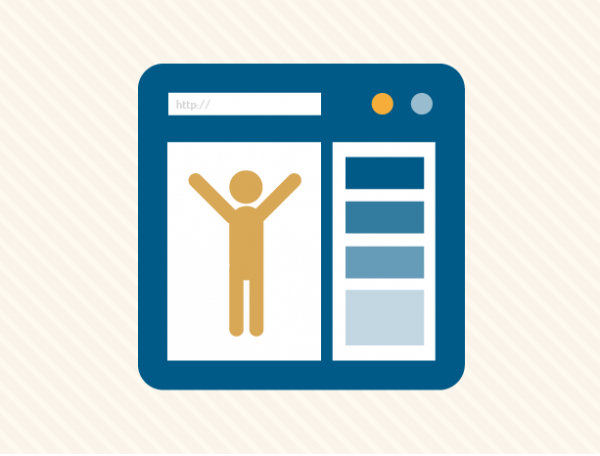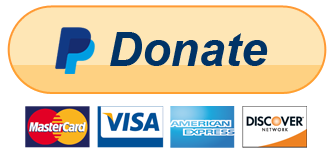In 2008, I met a person who had a mobility impairment. She had limited use of her arms and hands. While we were chatting, she mentioned some issues she was having with her computer. I was intrigued. How could she be using a computer without using her hands? Hoping I wasn't being offensive, I asked her if she'd mind showing me how she interacted with the computer. To my relief, she was happy to enlighten me. The enlightenment was more like a slap upside the head to realize that not everyone uses a mouse and keyboard to operate a computer. She used a reflective dot placed on her forehead as a mouse. A little receiver sat on top of her monitor to track the movement of the dot. She could bring up an on-screen keyboard to allow her to type.
>> Hiểu rõ về Super League - bom tấn nổ giữa lòng châu Âu
>> 1,5 triệu USD là số tiền một đại gia đưa ra để đổi lấy bữa tối với chân dài
>> Các dịch vụ trên dark web - hack một trang web với giá 2.000 USD
>> Cẩm Đan phản ứng gay gắt khi được mời đi ăn với giá 16.000 USD
I was amazed and slightly horrified. At the time, I was a web developer working for a federally funded non profit, and I was responsible for making the organization's websites accessible to everyone. I had a passing knowledge of how to make websites accessible for the blind users. It never occurred to me that there were other types of disabilities that were affected by how I built a website, and that it wasn't just a very minor portion of the population that was affected. (Close to 50 million people in the U.S. alone have a disability.)
I started taking notice of how family and friends (who I don't consider disabled in any way) were using their computers. A good friend of mine has a hand tremor which makes it difficult to be precise with the mouse. My grandpa had difficulty seeing small text on the monitor. I increased the default text size for him but it didn't work well on every site. These were things I could and should be building for. This new awareness is what caused me to dive into website accessibility and universal design in general. And here are a few reasons for you to make it a priority as well.
IT’S THE RIGHT THING TO DO
Everyone should be able to participate on the internet to their maximum extent possible, most especially when many of the barriers they face online could easily be resolved with a little knowledge and not much (if any) additional effort. It’s also good ethics for businesses and individuals to not discriminate against those with disabilities especially when much of accessible web design is simply focusing on quality design and development and following best practices.
An example:
Imagine trying to use your mobile phone as your main computer. While you can do quite a bit of browsing and email, there are inevitable barriers that cause you to wait until you can access a full computer to complete a task. This is often similar to what a person with a disability can face on a full computer except they don’t have the luxury of moving to a more capable system to remove those barriers. See blog post on “Five simple things you can do to make your site more accessible”.
IT’S THE SMART THING TO DO
Making your website inclusive to persons with disabilities:
- Opens the website up to a wider audience or larger customer base.
- Earns the respect and often repeat business from those people. Many websites are not built with accessibility in mind and unintentionally put up barriers to accessing the information on the site. Often, when a person finds a site that has the information they are looking for and the information is accessible to them where others are not, they will bookmark the website and promote it to others.
- Makes it more accessible and descriptive to Google which often translates into a boost in Google rankings.
- Makes it more accessible on mobile devices.
- Makes it more usable to everyone, not just those with a disability.
An example:
A common misconception is a website owner thinking they don’t need to make their website accessible because people with disabilities wouldn’t be accessing their site. I made this mistake, thinking a blind person wouldn’t be interested in accessing a musical instrument repair resource site because much of musical instrument repair depends on sight. I discovered I was wrong when a mother of a high school senior contacted me. Her son was interested in learning instrument repair and she was trying to determine what his options for learning the trade were and how much they would cost. The information was on the site but she couldn’t get to it because she was blind and accessing the link required clicking on it with a mouse. Tabbing to the link with the keyboard didn’t work with the way I had the site menu set up. I made a few changes on the site and ended up with several new subscribers because of it and a boost in Google rankings because Google could now access more information on the site.
LEGAL LIABILITY
Federal agencies:
Section 508 (1998 amendment) of the Rehabilitation Act of 1973 requires federal government agency websites to follow accessibility guidelines.
Federally funded entities:
According to the Section 504 of the Rehabilitation Act of 1973, "no qualified individual with a disability in the United States shall be excluded from, denied the benefits of, or be subjected to discrimination under any program or activity that receives Federal financial assistance". There is debate over whether this applies to websites or not.
State agencies
The Assistive Technology Act of 1998 requires state agencies that receive funding under the act to comply with section 508 guidelines for accessible websites.
Public sector:
While no U.S. law specifically requires websites in the public sector to be accessible, there is debate over whether non-government websites fall under “public accommodations” of the Americans with Disabilities Act of 1990.
An example (class action suit against Target):
“On September 7, 2006, the court ordered that a retailer may be sued if its website is inaccessible to the blind. In the court's opinion, Judge Marilyn Hall Patel explained that the order of the court was based upon "42 U.S. Code § 12182", the prohibition of discrimination by public accommodations clause of the Americans with Disabilities Act of 1990, which prohibits discrimination in the "enjoyment of goods, services, facilities or privileges."
































Bình luận (0)
Add Comment